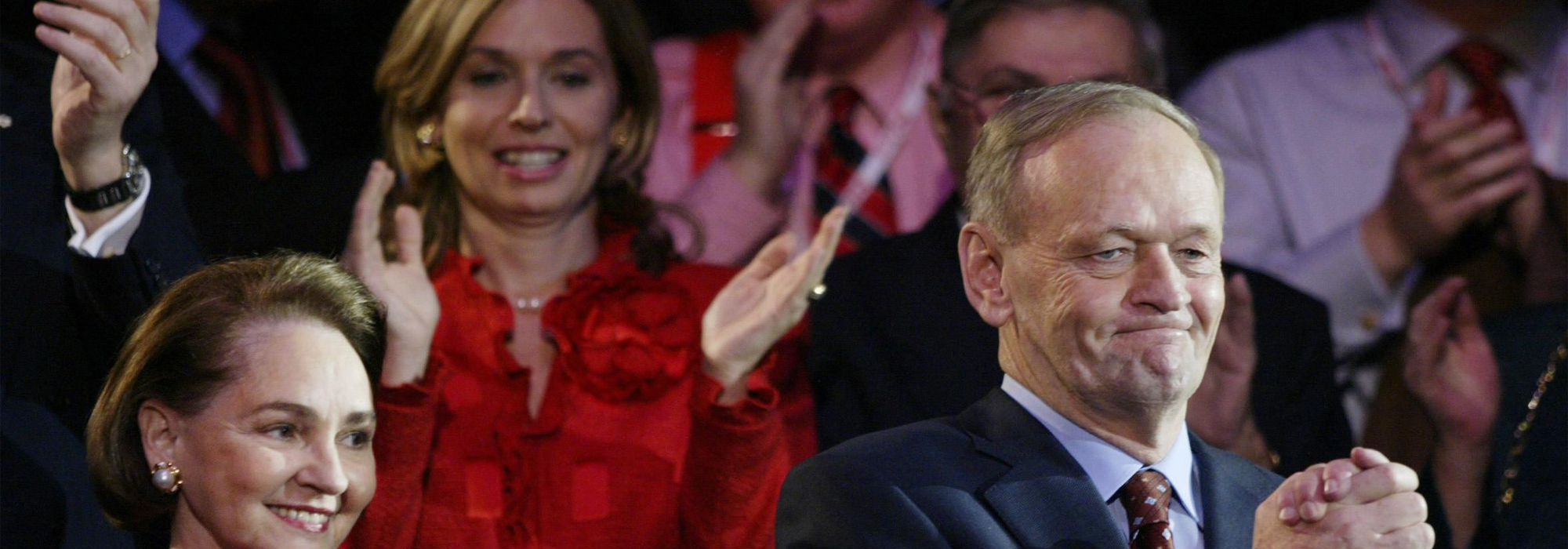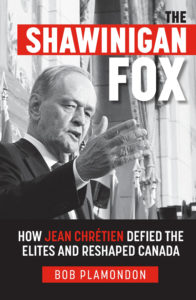
Populism is getting a rough ride these days. Around the world, angry voices — sometimes intolerant and conspiratorial — are occupying political space and power. The underlying ideology, if there is one, rests on a bed of grievance and mistrust. Donald Trump comes to mind. But he is not alone. The least of the problems — but it is a problem nonetheless — is that populism is getting a bad rap.
Jean Chrétien was a proud populist, even though it brought him ridicule. To his critics, Chrétien’s populism was his excuse not to think deeply about the issues. Populism, they said, allowed Chrétien not to have a vision or ideology, not to look ahead; it gave him a way to skirt complex problems by offering simplistic solutions that appealed to the masses.
After Chrétien left office in 2003, historians and academics were quick to dismiss his leadership style and prime ministerial record. In Right Honourable Men (2004), the historian Michael Bliss wrote that Chrétien was “moderately competent and only moderately corrupt.” Peter C. Newman described Chrétien’s time in office as a baleful and listless administration — an interregnum — without a defining legacy. As English comedians mocked his thick accent, critics in Quebec cringed at how he mangled the French language and accused him of selling out to English Canada, calling him Quebec’s “Uncle Tom.”
But Chrétien’s critics have it wrong. A review of what he accomplished and the festering national problems he addressed puts him in the category of one of our great prime ministers.
Chrétien’s brand of populism was not simplistic and was never destructive. He did not appeal to people’s fears or prejudices. His populism was not burrowed in the fringes but was grounded in the judgment of the widest possible swath of Canadians from all parts of the country. This approach freed him from ideology, dogma and even intellectual groupthink.
What Canadians saw in Jean Chrétien was an inherently optimistic prime minister. If people are worried or depressed, Chrétien argued, they won’t build for the future. But his approach was not to persuade Canadians with intellectual arguments or economic theories. His view was that the public was moved more by mood than by logic, more by instinct than by reason, more by results than by boastfulness. It was the personal qualities that Chrétien possessed that made him popular.
And few things made him more popular with the average Canadian than the Shawinigan handshake in 1996. That was when he grabbed a belligerent protester by the throat and threw him to the ground. Chrétien took lambasting on the editorial pages, and Newfoundland Premier Brian Tobin told Chrétien the incident would not go over well in his province, but for a different reason. Tobin said in an interview with me that he informed the Prime Minister most Newfoundlanders thought he should have “kicked the protester in the balls rather than grabbing him by the throat.” There was an authenticity about Chrétien that was impossible to deny and hard to dislike.
Being a populist was an image Chrétien cultivated. That’s why he hid from view his taste in literature and music, interests most Canadians might associate with the glittering class. Chrétien’s instincts told him that tooting his own horn or seeking to be the centre of attention would cost him votes. It’s not an accomplishment, he said to me, for a prime minister (or a president of the United States) to be in the news a lot.
Unlike modern-day populists, Chrétien wanted to be a strategic player, not a controlling all-knowing mastermind. Even though his staff and ministers frequently referred to Chrétien as “the Boss,” his style in managing cabinet was less managerial and more chair of the board. He was determined to download power from the Prime Minister’s Office to the offices of ministers and then from their offices into the hands of the professional bureaucracy. Chrétien wanted to get out of the way of the day-to-day functioning of government. He reduced the number of permanent cabinet committees from more than a dozen to only two: on economic policy and on social policy.
Perhaps the most important source of Chrétien’s populism was that he was a problem solver, not an ideologue.
Chrétien ran only a few key priorities and issues from the centre. These were areas that cut across departments, such as government finances and national unity. Because he didn’t dive into the details, Chrétien was ridiculed by columnists as someone with a short attention span or, worse, a simpleton who refused to read more than a single-page memo. But Chrétien understood that the fine print is not where political leadership is exercised or where Canadians wanted him to pay attention.
Perhaps the most important source of Chrétien’s populism was that he was a problem solver, not an ideologue. To the frustration of his opponents, he didn’t hesitate to change past positions when dealing with new circumstances, new evidence or unexpected events. Despite coming to office with more experience around the cabinet table than any of his predecessors, Chrétien had few fixed policy prescriptions in mind. Rather, he had instincts.
Chrétien cared about kitchen-table issues and did not get sucked into arguments about economic theories or artificial abstractions. Opposition politicians grumbled when Chrétien said that wives didn’t like it that their husbands were being paid employment insurance to stay at home and drink beer. Chrétien was capable of great empathy, but not for the lazy. When a woman with three degrees complained she could not find a job, Chrétien said she might have to move to find work. This got him into trouble on the editorial pages, but not with voters.
Chrétien’s personal qualities and open mind adapted well to unforeseen circumstances. Never was that more important than when Canada was asked to join in the Iraq War. Chrétien could not be bullied, and he refused to surrender his instincts and his judgment to world leaders. He had no desire to impress the powerful or the affluent.
Academics and historians were not impressed by Chrétien, but he consistently proved his critics wrong. For a man who was thought to be unserious, he was as clever and cunning as the proverbial fox.
After demonizing Chrétien, Quebec nationalists could not reconcile themselves to the reality that he gave their province new tools to protect the French language and culture. Canada had not been as united in the previous 50 years as when Chrétien left office. Economists were left to wonder how Chrétien turned around the national finances without triggering a recession. Canadians said in a survey that staying out of Iraq was the country’s greatest foreign policy achievement. University presidents still marvel at how Chrétien rebuilt Canada’s intellectual infrastructure, turning a brain drain into a brain gain.
Unlike almost any prime minister in Canadian history, he was as popular when he left office as when he arrived. Chrétien was the right leader for the times. He fixed problems. He made difficult and controversial decisions that time has proven prescient. The country thrived under Chrétien’s populism because, as he told me, “I trusted the great judgment of the Canadian people.”
He deserves his place in Canada’s history books, not just for his electoral success and his time in office but for a remarkable record of accomplishment. He may have been le petit gars de Shawinigan, but Jean Chrétien was also one of Canada’s greatest and most popular prime ministers.
Photo: Prime Minister Jean Chretien (right) arrives to a tribute ceremony honouring him at the Liberal leadership convention in Toronto, Thursday Nov 13, 2003 as his wife Aline (left) and daughter France Desmarais look on. (CP PHOTO/Tom Hanson)
Do you have something to say about the article you just read? Be part of the Policy Options discussion, and send in your own submission. Here is a link on how to do it. | Souhaitez-vous réagir à cet article ? Joignez-vous aux débats d’Options politiques et soumettez-nous votre texte en suivant ces directives.









